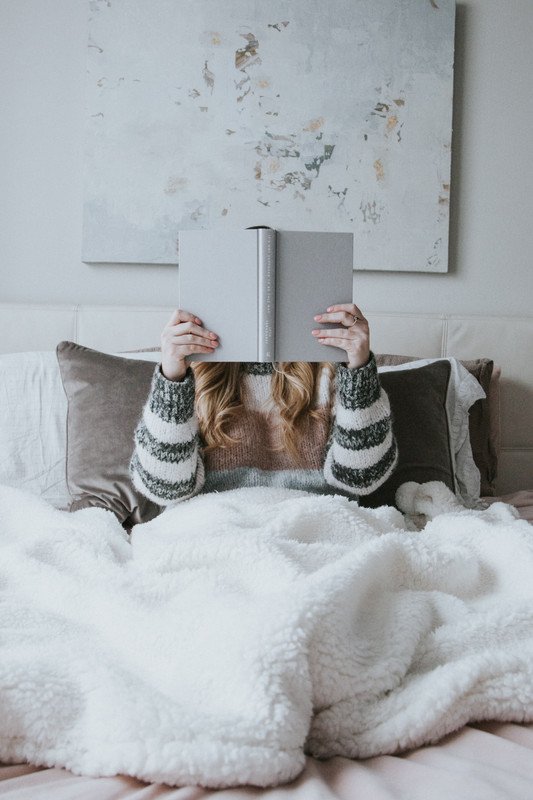For those who hate to read but want to read more, this article is for you.
Below are 5 short and easy tricks to become a reader. These tricks may take time to include into your life, but if you stick to them, you will be reading the classics in no time.
1) If you really want to make a habit stick, make it a part of your identity.
When an activity becomes a part of our identity, we feel driven to engage with that activity to uphold that image of our self. If reading is a part of your identity, the habit will stick for as long as you identify yourself as a reader.
It is important to identify with the habit we want to create so that we are internally motivated to engage with the activity.
2) Once you have aligned your identity with your chosen habit, it is time to convince your brain to repeat the habit.
Set a goal that is small enough to achieve every day without discomfort (we are aiming to entice our brains into wanting to complete this habit, not to avoid it). Once you have your goal set, shape your environment, and your regular habits, to direct you towards completing the desired habit.
For example, you can place a book in a prominent position within arm’s reach of the porcelain throne so that you automatically pick it up when you sit down for the daily movement. At first, you will have to remind yourself to read while on the can but after a while, it will be completely automatic.
By repeating the habit of reading regularly over time, it will begin to feel like less of a chore and more of a normal part of your life.
_Support the author and buy a coffee! _https://www.buymeacoffee.com/emerycastex
3) Make reading more appealing by beginning with a book you enjoy.
At first, ignore the lists of “100 books every so-and-so must read” and find one book that appeals to you. Go to the library and find any book that jumps out to you.
Read the first page, are you drawn in?
Are you full of questions and dying to know what happens next?
If the answer is no, put it back and try a different book.
If yes, congrats! You have found your first book!
If your long-term personal development goal is towards learning more about topics such as investing, history, or crocheting but you fall asleep every time you pick up a non-fiction book, that is okay. Start small with a fiction book that draws you in and makes you excited to read. We want to develop an association between excitement and reading that will not happen if you keep banging your head against Crocheting for Dummies.

Photo by David Lezcano on Unsplash
4) Get lost in your fiction book, feel the emotions the author portrays, imagine the scenery of the epic battles.
This develops your capacity for reading and makes your brain begin to crave a good book. When you begin to experience these desires for reading, start slipping in some short non-fiction.
A good trick to begin is to treat non-fiction as your vegetables (for those who dislike vegetables) and complete your reading goal with the non-fiction book first. When you have finished your non-fiction veggies for the day, reward yourself by reading your fiction book for fun.
This trick will start to change your reluctance to non-fiction into the same excitement you experience with fiction books (this will take time).
Keep this routine light and stay consistent, you will develop the attention span and desire for non-fiction slowly.
5) A bonus trick is to reduce the sources of easy dopamine spikes in your life.
A lot of our modern-day distractions such as streaming, social media, and video games have been carefully designed to give our brains easy dopamine spikes so that we quickly become addicted to using their products. All of those promises of dopamine makes reading a book seem very boring to our brains.
If we want to read more, we can make it more appealing by first turning down the dopamine we get from technology by limiting the amount we consume.
An easy way to do this is to set up screen time restrictions on your phone. Set the restriction to end one hour after you wake up in the morning and to begin one hour before bedtime. This will prevent you from waking up and immediately scrolling through TikTok or falling asleep to Netflix at night.
Having this restriction set on your phone/devices will make it automatic so you do not have to actively remember to stay off the tech.
Our brains are wired to seek out dopamine so it may take a few days to adjust to the reduced dopamine spikes. Stick it out and find other things to do with your new found freedom from technology, like reading!
Check out my Etsy: https://fancypantsanimals.etsy.com